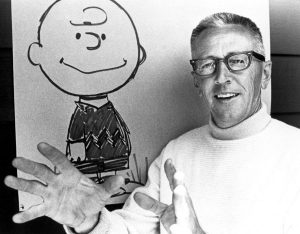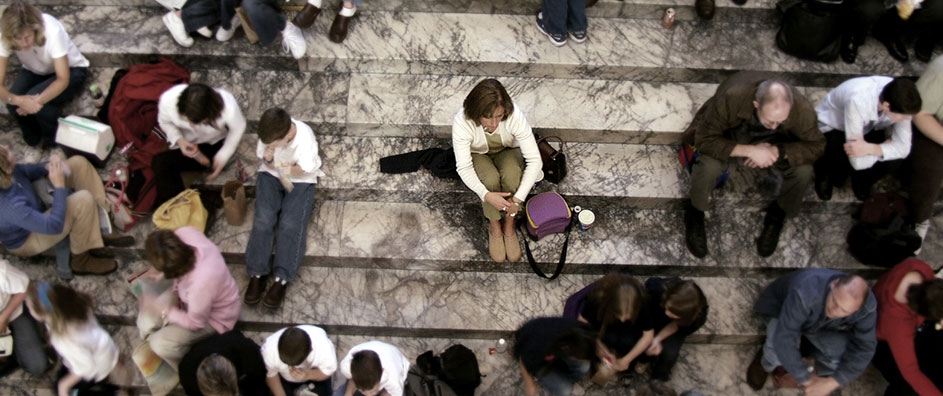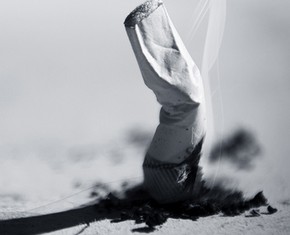The views expressed in our content reflect individual perspectives and do not represent the authoritative views of the Baha'i Faith.
Charles Schulz, the creator of Peanuts, famously wrote this line for his cartoon character Linus: “I love mankind—it’s people I can’t stand!!”
Can you relate? Apparently, lots of folks could, since that cartoon has become one of Schulz’s most loved, iconic works. Now called Schulz’s Paradox by some philosophers, the idea that you could love mankind but not like people that much deserves our consideration.
 In interviews, Schulz said that his character Linus—who he usually drew holding a tattered security blanket—represented the cartoonist’s spiritual side. His “I love mankind” cartoon became probably one of the best-known paradoxical statements in modern times, and still makes us think deeply about our own feelings for our entire species, and every person in it.
In interviews, Schulz said that his character Linus—who he usually drew holding a tattered security blanket—represented the cartoonist’s spiritual side. His “I love mankind” cartoon became probably one of the best-known paradoxical statements in modern times, and still makes us think deeply about our own feelings for our entire species, and every person in it.
If you want to truly love humanity, Schulz’s Paradox slyly asks, can you do it without loving every individual human?
This question leads us to the first and most challenging requirement of being a true Baha’i—“love for mankind,” as Abdu’l-Baha put it. That universal love, the Baha’i teachings tell us, means going beyond the general to the particular, from the whole to the part:
If he is a Baha’i in reality, his deeds and actions will be decisive proofs of it. What are the requirements? Love for mankind, sincerity toward all, reflecting the oneness of the world of humanity, philanthropy, becoming enkindled with the fire of the love of God, attainment to the knowledge of God and that which is conducive to human welfare. – Abdu’l-Baha, The Promulgation of Universal Peace, p. 336.
So in this series of essays, let’s explore those seven deeds and actions one by one, and do some personal soul-searching in the process. Ask yourself: how do I practice these deeds and actions in my day-to-day life, and what could I do to improve? Here are those deeds and actions in list form:
- Love for mankind,
- sincerity toward all,
- reflecting the oneness of the world of humanity,
- philanthropy,
- becoming enkindled with the fire of the love of God,
- attainment to the knowledge of God
- and that which is conducive to human welfare.
In his book Everyday Ethics: Inspired Solutions to Real-Life Dilemmas, the author and philosophy professor Joshua Halberstam reflected on the Schulz cartoon and on Linus’ famed pronouncement, and said that a professed devotion to all of humanity:
… is often a mask for an inability to connect to other people on a personal level. Some of the greatest lovers of mankind have downright ugly histories when it comes to their personal relationships. … Our emotions are directed to individuals, not abstractions.
Of course, because we’re hardwired emotionally to love people as individuals, we have to figure out a way to show true love for all people, rather than just professing it. If you’ve tried practicing that spiritual virtue, you already know that it isn’t easy, because individual people aren’t always very lovable. They’re difficult and prickly and egotistical and angry and aloof; they’re cranky and emotionally closed-off and hard to fathom. But regardless of their faults and bad qualities, the Baha’i teachings say that we can best show our love for humanity by loving individual human beings:
According to the teachings of Baha’u’llah you must love and cherish each individual member of humanity.
The first sign of faith is love. The message of the holy, divine Manifestations is love; the phenomena of creation are based upon love; the radiance of the world is due to love; the well-being and happiness of the world depend upon it. Therefore, I admonish you that you must strive throughout the human world to diffuse the light of love. – Abdu’l-Baha, The Promulgation of Universal Peace, p. 336.
So for Baha’is, Abdu’l-Baha’s powerful counsel—“the first sign of faith is love”—means having no enemies. It means fostering a universal, all-encompassing spirit of love for everyone. It means freeing ourselves from every prejudice, every bias and every inclination toward one group over another.
Yes, that is hard. In fact, people consistently ask, how is it even possible? If we’re honest, and we recognize the shortcomings of others, how can we get past them and love that person? The Baha’i teachings have a recommendation:
One must expose the praiseworthy qualities of the souls and not their evil attributes. The friends must overlook their shortcomings and faults and speak only of their virtues and not their defects. – Abdu’l-Baha, Star of the West, Volume 3, p. 192.
Thus is it incumbent upon us, when we direct our gaze toward other people, to see where they excel, not where they fail.
Praise be to God, thy goal is to promote the well-being of humankind and to help the souls to overcome their faults. This good intention will produce laudable results. – Abdu’l-Baha, Selections from the Writings of Abdu’l-Baha, p. 169.
You May Also Like
Comments

















"The first is the love that flows from God to man; it consists of the inexhaustible graces, the Divine effulgence, and heavenly illumination...This love is the origin of all the love in the world of creation.
The second is the love that flows from man to God...
The third is the love of God towards the Self or Identity of God...
The fourth is the love of man for man..."
--'Abdu'l-Baha, Paris Talks, London, Saturday, January 4th, 1913